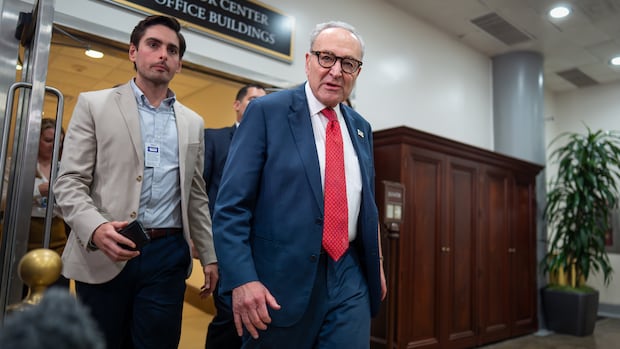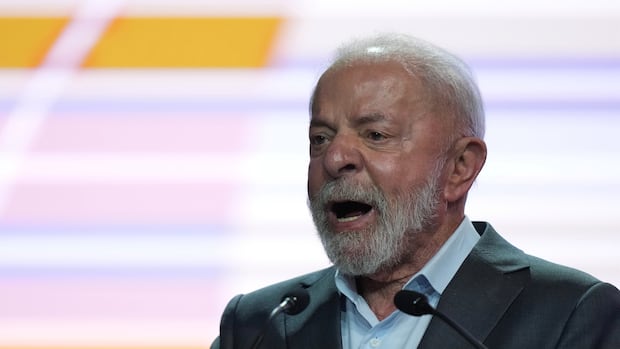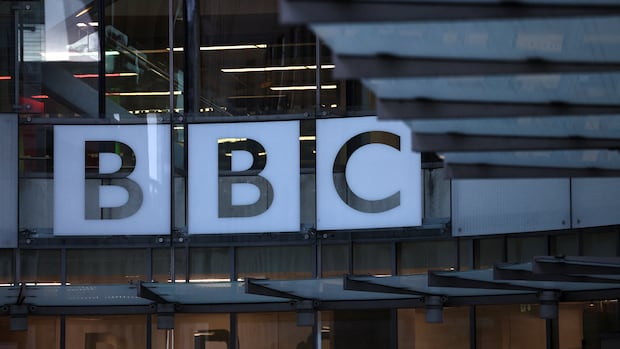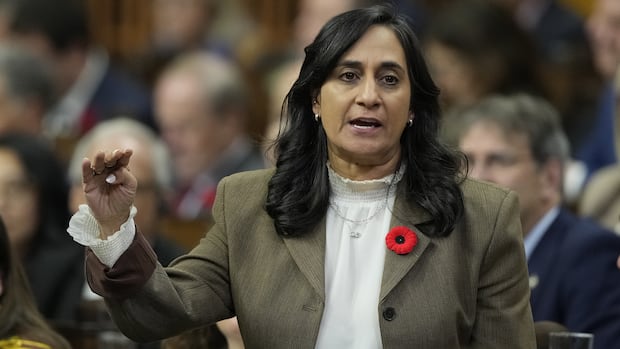Democrats in Congress managed to stand firm against U.S. President Donald Trump long enough to force the lengthiest federal government shutdown in the country's history.
But now that a handful of Democratic senators have agreed to a deal that would end the shutdown, the party risks throwing away some of the political advantage they've gained over the past six weeks.
Polls consistently showed the Democrats winning the public opinion showdown over the shutdown. Solid majorities of voters were telling pollsters they blamed the Republicans in Congress or Trump himself more than the Democrats for what was happening.
Those same polls also suggested most voters were on-side with the Democrats on the issue at the crux of the standoff in Congress: the looming expiration of health insurance subsidies, poised to drive up the cost of premiums for tens of millions of Americans.
Yet all the Democrats have in hand on that after 40 days and 40 nights of the shutdown is a Republican promise to hold a vote in the Senate on extending the subsidies — a promise that had been on the table for weeks, for a vote the Democrats are almost certain to lose.
The Republican Speaker of the House, Mike Johnson, was gloating about it, complete with a Seinfeld reference.
WATCH | The end of the U.S. government shutdown is in sight:Several U.S. Democratic senators have had to justify their decision to vote along with the Republicans in order to start the process of ending the longest government shutdown in U.S. history."It really was a shutdown about nothing." Johnson said Monday evening in an interview on CNN. "I don't think Chuck Schumer [the Democrat minority leader in the Senate] got anything out of this other than a political show."
It would be tough for the Democrats to make a case that they got anything tangible out of the shutdown.
Gavin Newsom calls deal 'pathetic'Beyond the vote on extending the Affordable Care Act subsidies, the other major commitment they obtained from the Republicans is really just a return to the pre-shutdown status quo: reinstating the more than 4,000 federal workers whose jobs were eliminated.
That has led to a sharp backlash from many prominent Democrats outside the Senate who wanted the leadership to keep playing hardball:
"Pathetic. This isn’t a deal. It’s a surrender," posted California Gov. Gavin Newsom, widely seen as a Democratic presidential candidate in 2028, on X. "A complete betrayal of the American people," posted Juliana Stratton, the Illinois lieutenant governor who's a candidate for the U.S. Senate next year. "Feckless traitors," is one of the few non-profane descriptions posted by Keith Olbermann, the anchor-turned-commentator.But could the Democrats make a case that they achieved something intangible?
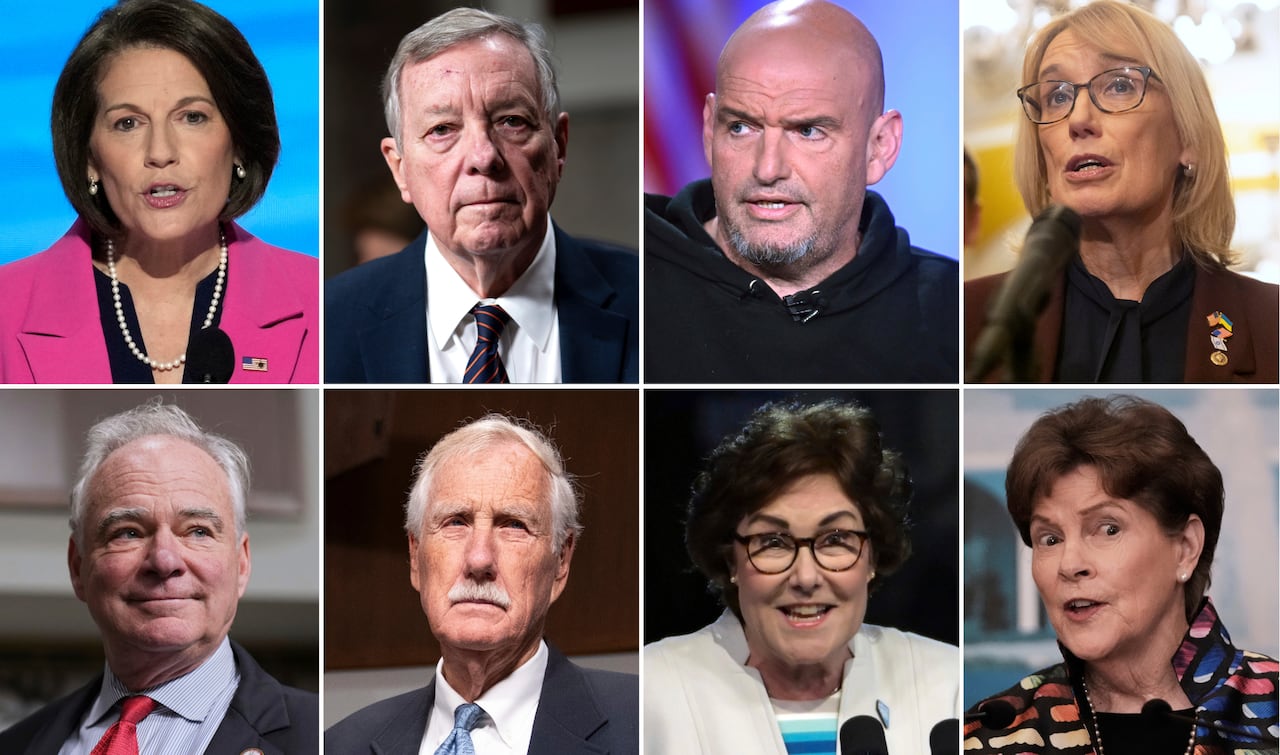 This composite photo of eight senators who are facing criticism from the Democratic party for their deal to end the government shutdown shows, top row from left: Sen. Catherine Cortez Masto, D-Nev.; Senate Judiciary Committee Chairman Dick Durbin, D-Ill.; Sen. John Fetterman, D-Pa.; Sen. Maggie Hassan, D-N.H. Bottom row from left: Sen. Tim Kaine, D-Va.; Sen. Angus King, I-Maine; Sen. Jacky Rosen, D-Nev.; and Sen. Jeanne Shaheen, D-N.H. (The Associated Press)
This composite photo of eight senators who are facing criticism from the Democratic party for their deal to end the government shutdown shows, top row from left: Sen. Catherine Cortez Masto, D-Nev.; Senate Judiciary Committee Chairman Dick Durbin, D-Ill.; Sen. John Fetterman, D-Pa.; Sen. Maggie Hassan, D-N.H. Bottom row from left: Sen. Tim Kaine, D-Va.; Sen. Angus King, I-Maine; Sen. Jacky Rosen, D-Nev.; and Sen. Jeanne Shaheen, D-N.H. (The Associated Press)Since losing the presidency, the House and the Senate last year, the Democrats have been searching for a political path forward
For months, the party struggled for traction amid Trump's fast-paced push to slash federal agencies, hit imports from around the world with sky-high tariffs, send troops into U.S. cities to bolster his immigration enforcement blitz, redraw election maps to favour the Republicans and generally push the limits of presidential powers.
The Democratic leadership faced mounting criticism from left-leaning grassroots members that it needed to do more to stand up to the Republican president.
Then came October and the beginning of the shutdown, followed by early November election day successes for the Democrats: winning the races for governor in Virginia and New Jersey, and winning a California ballot measure paving the way to redraw its election map potentially turning more House seats blue next year.
Shutdown impact was being feltWhile the shutdown may have helped bring the Democrats some political gains, it was starting to have a real impact on the lives of ordinary people in the U.S.
Thousands of flights had been cancelled, largely a result of the Trump administration ordering airlines to reduce service. Hundreds of thousands of federal workers weren't getting paid. Some 42 million low-income Americans faced the prospect of losing SNAP, the Supplemental Nutrition Assistance Program, formerly known as food stamps.
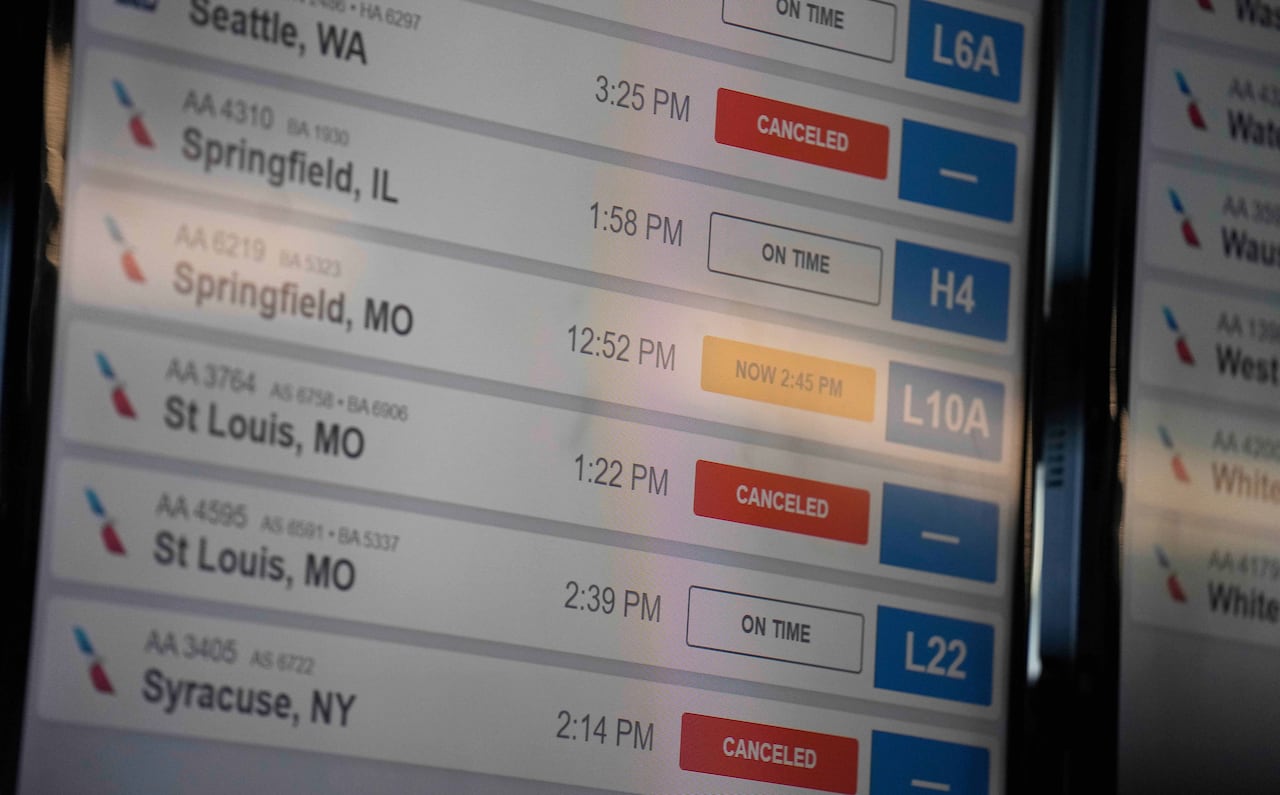 Some flights are shown as cancelled at O'Hare International Airport in Chicago on Monday. (Erin Hooley/The Associated Press)
Some flights are shown as cancelled at O'Hare International Airport in Chicago on Monday. (Erin Hooley/The Associated Press)Eight members of the Senate Democratic caucus broke ranks to give the Republicans the 60 votes needed to advance the bill that would end the shutdown, once the House and Trump signs off.
It's notable that none of the eight risks the wrath of voters in the midterms next year. None of them will be up for re-election in 2026, as two are retiring, and the rest will be only partway through their six-year terms.
A common theme among their explanations for supporting the deal: all that could be accomplished through the shutdown had already been achieved. The Democrats had brought health insurance affordability to the forefront, but couldn't reasonably expect the Republican majority in Congress would cede any ground on the issue.
"If the tactic isn’t working, and there were no prospects that it was going to work, then let’s move on, not make a lot of other people suffer in order to to get a goal that wasn’t attainable," said Angus King, the 81-year-old Independent senator from Maine who caucuses with the Democrats.
"Standing up to Donald Trump didn’t work. It actually gave him more power," King added.
Sen. Tim Kaine of Virginia, a state that's home to some 300,000 federal employees, said the deciding factor for him was language in the bill that prevents the Trump administration from conducting more mass layoffs of government workers.
The deal to end the shutdown could get to the floor of the House for a vote as early as Wednesday. It's expected to pass, given the Republicans' slim majority.
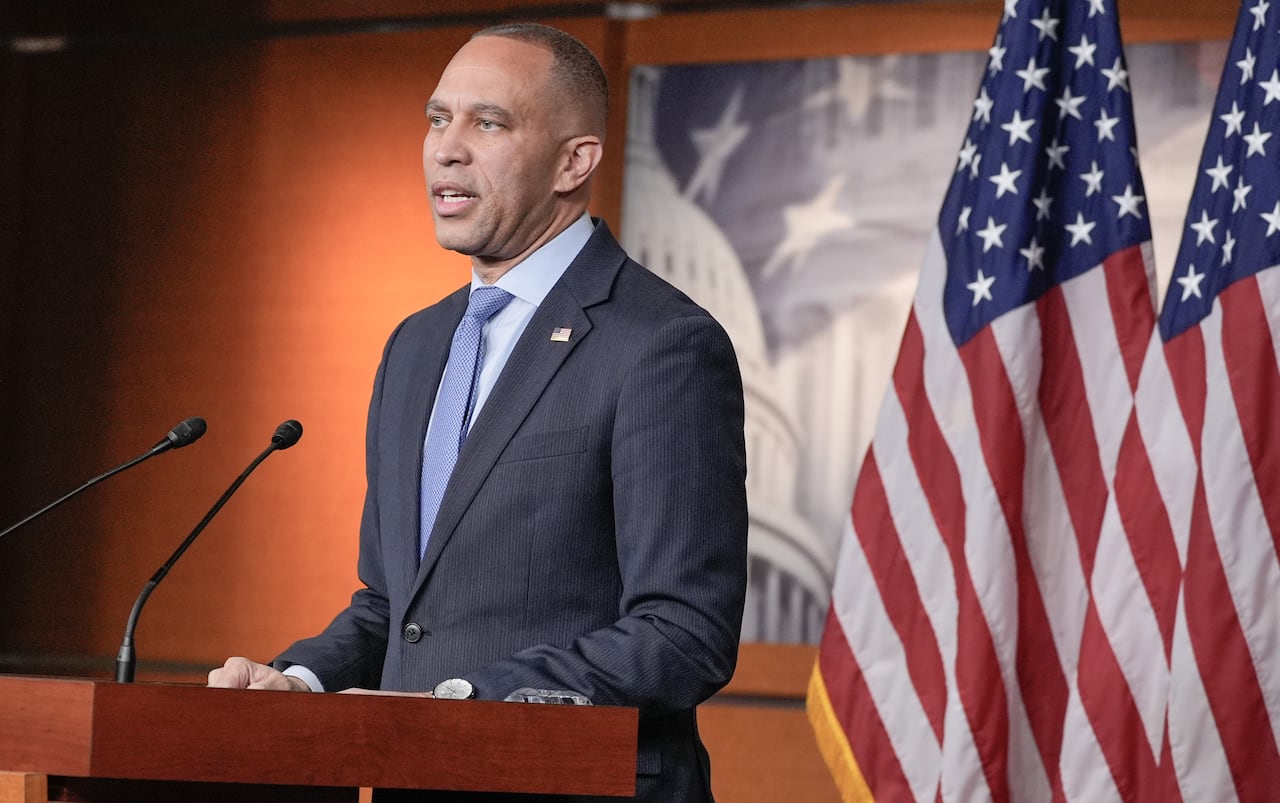 House Minority Leader Hakeem Jeffries, a Democrat from New York, speaks during a news conference on Capitol Hill on Monday, the 41st day of the U.S. government shutdown. (Mariam Zuhaib/The Associated Press)
House Minority Leader Hakeem Jeffries, a Democrat from New York, speaks during a news conference on Capitol Hill on Monday, the 41st day of the U.S. government shutdown. (Mariam Zuhaib/The Associated Press)Despite the likelihood that he can't stop the deal from going through, Democrat House Minority Leader Hakeem Jeffries is still talking tough.
"We're not going to stop the fight. We're going to continue to lean in to the fight," Jeffries told a news conference Monday on Capitol Hill.
"Tens of millions of Americans are about to experience dramatically increased health-care costs," Jeffries said, offering a hint of the Democrats' likely post-shutdown political strategy.
"In some cases, their health insurance premiums will increase by $1,000 or $2,000 per year," he said. "That is unacceptable. It will be unaffordable for working class Americans, middle class Americans and everyday Americans."
So even if the Democrats don't succeed in extending the Obamacare subsidies, they'll have gained an affordability issue that they can try to pummel the Republicans with next year.


